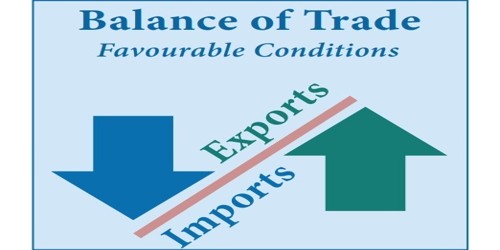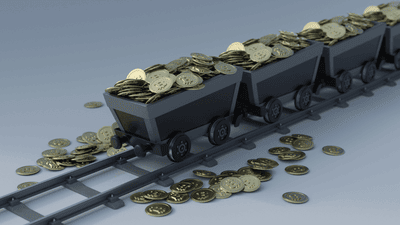
Inflation is a crucial economic indicator that significantly impacts the financial lives of individuals and households. Understanding how inflation affects your daily finances can empower you to make informed decisions regarding budgeting, saving, investing, and spending.
Understanding Inflation
What Is Inflation?
Inflation is defined as the rate at which the general level of prices for goods and services rises over time. When inflation occurs, each unit of currency buys fewer goods and services, leading to a decrease in purchasing power. For instance, if inflation is running at 3 percent, a product that costs 100 dollars today will cost 103 dollars a year from now.
Types of Inflation
Inflation can manifest in several forms, each with distinct causes and effects:
Demand-Pull Inflation: This occurs when demand for goods and services exceeds supply. Factors such as increased consumer spending, government expenditures, and economic growth can drive demand-pull inflation.
Cost-Push Inflation: This type arises when the costs of production increase, leading businesses to raise prices to maintain profit margins. Rising wages, increased raw material costs, and supply chain disruptions can all contribute to cost-push inflation.
Built-In Inflation: Also referred to as wage-price inflation, this occurs when businesses raise prices in anticipation of rising costs. Workers demand higher wages to keep up with the cost of living, resulting in a self-perpetuating cycle of rising prices and wages.
Measuring Inflation
Inflation is commonly measured using various indices, with the Consumer Price Index (CPI) and the Producer Price Index (PPI) being the most widely used.
Consumer Price Index (CPI): The CPI tracks the prices of a basket of consumer goods and services. It is used to measure the changes in purchasing power and living standards over time.
Producer Price Index (PPI): The PPI measures the average changes in selling prices received by domestic producers for their output. It provides insight into future consumer inflation as it captures price changes at earlier stages of production.
The Impact of Inflation on Your Daily Finances

1. Purchasing Power
The most immediate effect of inflation on your daily finances is its impact on purchasing power. As prices rise, your money buys less than it did before. This erosion of purchasing power can affect various aspects of your life, including:
Groceries: Inflation often leads to higher prices for everyday essentials, causing grocery bills to increase. Families may struggle to maintain their previous level of consumption as budget constraints tighten.
Housing Costs: Rising inflation can lead to increased rental prices and higher costs for homeownership, including mortgage rates and property taxes. Individuals may find it more challenging to afford quality housing or may need to downsize.
Utilities: Utility costs for electricity, water, and gas are also subject to inflation. Higher energy prices can significantly impact household budgets.
2. Savings and Interest Rates
Inflation directly influences savings and interest rates, which are vital components of personal finance. The relationship between inflation and interest rates can impact your financial decisions in the following ways:
Savings Accounts: The real interest rate on savings accounts is essential for assessing the growth potential of your savings. If the interest rate offered by your bank is lower than the inflation rate, the purchasing power of your savings diminishes over time.
Investment Returns: For investors, inflation erodes the real returns on investments. When analyzing potential investments, it is critical to assess whether the returns can outstrip inflation.
Borrowing Costs: Central banks often adjust interest rates in response to inflation. When inflation rises, central banks may increase interest rates to cool economic growth. This can translate to higher borrowing costs for loans and mortgages, affecting funding for big-ticket items such as homes and cars.
3. Budgeting and Financial Planning
Inflation necessitates ongoing adjustments to budgeting and financial planning. To effectively manage daily finances in an inflationary environment, consider the following:
Adjust Your Budget: Regularly review and adjust your budget to account for rising prices in essential categories. This may involve reallocating funds from discretionary spending to cover increased living costs.
Emergency Fund Considerations: In times of rising inflation, maintaining a robust emergency fund becomes even more critical. Ensure your emergency fund is sufficient to cover several months of living expenses, as inflation can exacerbate financial uncertainty.
Long-Term Financial Goals: Inflation can influence retirement planning and long-term savings goals. When planning for future expenses, consider projecting higher costs due to inflation, ensuring that your savings target accounts for this factor.
4. Investments and Wealth Management
Inflation plays a significant role in investment performance and wealth management strategies. To safeguard your investments against inflation, consider the following approaches:
Diversification: A well-diversified portfolio can provide stability in the face of inflation. Consider including a mix of asset classes, such as stocks, bonds, real estate, and commodities, to balance risk and potential returns.
Stocks and Equities: Historically, equities have provided higher long-term returns compared to other asset classes. Investing in companies that can raise prices in line with inflation can help protect your wealth.
Inflation-Protected Securities: Consider investing in Treasury Inflation-Protected Securities (TIPS) or other inflation-linked bonds designed to protect your portfolio against inflation. These securities provide returns adjusted for inflation, helping maintain purchasing power.
Real Assets: Investments in real assets, such as real estate or commodities, can serve as a hedge against inflation. These assets tend to appreciate in value during inflationary periods, preserving wealth.
5. Impact on Retirement Planning
Inflation significantly affects retirement planning, making it crucial to incorporate future inflation expectations into your strategy:
Retirement Savings Goals: When determining how much to save for retirement, consider the impact of inflation on your future living expenses. Adjust your retirement savings target to ensure it accounts for expected inflation rates.
Withdrawal Rates: In retirement, the focus shifts to managing withdrawals sustainably. Strategies such as the four percent rule may need adjustments to ensure that withdrawal amounts keep pace with inflation.
Social Security Benefits: Social Security benefits are usually adjusted according to the CPI, which accounts for inflation. However, retirees should still plan for the possibility that these adjustments may not fully keep pace with rising living costs.
6. Consumer Behavior
Inflation often influences consumer behavior and spending patterns. Rising prices can lead to changes in purchasing decisions:
Shifting Consumption: Individuals may switch from name-brand products to generic options to save money during inflationary periods. Understanding these patterns can inform budgeting and spending strategies.
Delaying Purchases: Consumers may defer discretionary purchases in anticipation of lower prices in the future, affecting demand for certain goods and services.
Increased Debt Concerns: As inflation erodes purchasing power, individuals may find themselves relying more on credit cards or loans to finance day-to-day expenses, leading to higher debt levels and potential financial strain.
Strategies to Mitigate the Impact of Inflation
While inflation is an inevitable part of the economic landscape, there are steps you can take to protect your finances:
1. Enhance Your Financial Literacy
Improving your understanding of inflation and economic trends can empower you to make better financial decisions. Stay informed about current events, economic indicators, and how they affect your daily finances.
2. Create an Adaptive Budget
Adopt a flexible budgeting approach that allows for adjustments in response to inflation. Regularly review your budget to identify areas where you can cut back or reallocate funds to manage rising costs adequately.
3. Increase Your Income
Consider exploring opportunities to increase your income, whether through negotiating a salary raise, seeking a higher-paying job, or pursuing side hustles. Growing your income can help you keep pace with inflation.
4. Invest Wisely
Take a proactive approach to investing by focusing on assets that can outpace inflation. Diversify your investment portfolio to include growth-oriented assets and consider allocating funds to inflation-protected securities.
5. Evaluate Your Debt Strategy
Review your existing debt obligations and consider strategies for reducing high-interest debt. Paying off high-interest loans can save you money in the long run and improve your overall financial stability.
6. Plan for the Long Term
Incorporate inflation into your long-term financial planning. When saving for retirement or major life goals, ensure your projections account for inflation to secure adequate funds in the future.
7. Utilize Financial Tools and Resources
Leverage financial tools, such as budgeting apps, retirement calculators, and investment platforms, to help manage your finances effectively. Many of these resources can provide valuable insights and recommendations.
Conclusion

Inflation is a significant economic indicator that has far-reaching effects on daily finances. Understanding its impact on purchasing power, savings, investments, and budgeting is essential for effective financial management. By incorporating strategies to mitigate inflation's effects, you can protect your wealth, achieve your financial goals, and maintain a comfortable standard of living.
Stay informed about economic trends, adapt your financial strategies, and take a proactive approach to safeguarding your finances against inflation. With careful planning and informed decision-making, you can navigate the challenges posed by inflation and secure your financial future.







